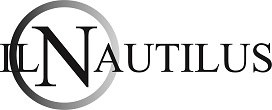The Panama Maritime Authority (PMA) participated in the inauguration of “Fouling Focus”, an initiative of the International Maritime Organization (IMO), the International Maritime University of Panama (UMIP) and other organizations, to mitigate the spread of invasive maritime species (biofouling).
Engineer Luis Roquebert V., the designated administrator of the PMA, — who has a 39-year professional experience, specifically in the oil transportation sector—, pointed out that “The spread of invasive species is nowadays considered as one of the biggest threats to the marine ecosystems”.
Roquebert added that this is a matter directly related to ships and the increase of maritime world trade, which makes biofouling, a global problem.
Marine organisms adhere to the hull of a vessel in a period that can be as short as 24 hours or less. Hence the importance of biofouling risk assessment and the implementation of inspection methods that allow field observation of the different ship cleaning technologies and the most updated solutions available to combat the negative effects of the problem.
This process of biological transportation of invasive species causes many environmental and economic complications to the maritime industry and constitutes a great challenge to the sector.
Roquebert indicated that “The strategies of effective management of biofouling and the international guidelines are very important for us, since we need these guidelines to preserve our environment and to let us move forward towards progress.”
From July 8 to 12 expert scientists from Latin America and the Caribbean will participate in the forum that will include technological demonstrations and specialized workshops. These activities will provide tools to strengthen the regional capacity to implement guidelines to control and manage the accumulation of microorganisms, plants, algae or small animals in the hulls, vessels and maritime structures.
In addition to the IMO and UMIP, MTCC Caribbean and MTCC Latin America also participated in the organization of the “Fouling Focus”. The activity is part of the IMO-NORAD TEST Biofouling and GEF-UNDP-IMO GloFouling Partnerships project.
“Fouling Focus” is expected to contribute meaningfully to the preservation of the marine ecosystems and the mitigation of the negative effects of the spread of invasive species in the region.
The agenda of activities started with a training course divided in six modules that will take place on Monday, July 8 and Tuesday, July 9. This training will address risks, assessments and ship hull inspection methodologies.
On Wednesday, July 10, the participants will visit the Balboa Port to witness demonstrations on the use of advanced cleaning technology. Thursday 11 and Friday 12 will be dedicated to workshops on management of marine biofouling, with a special focus in the participation of Latin American women in the discussion of these matters.













